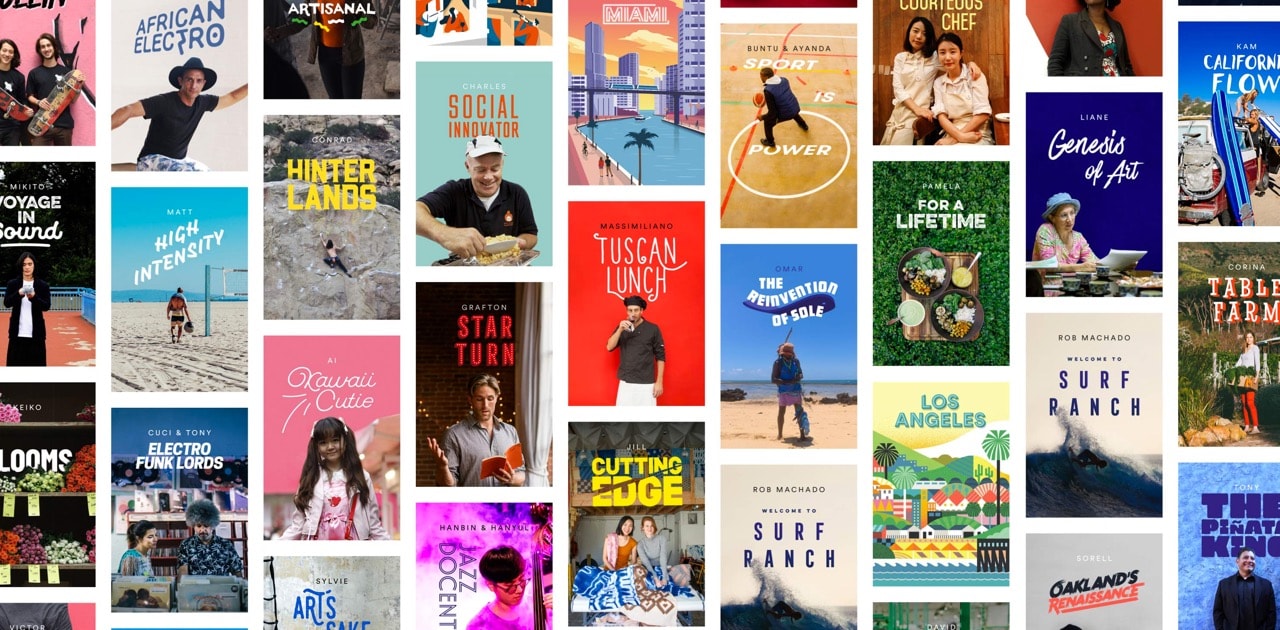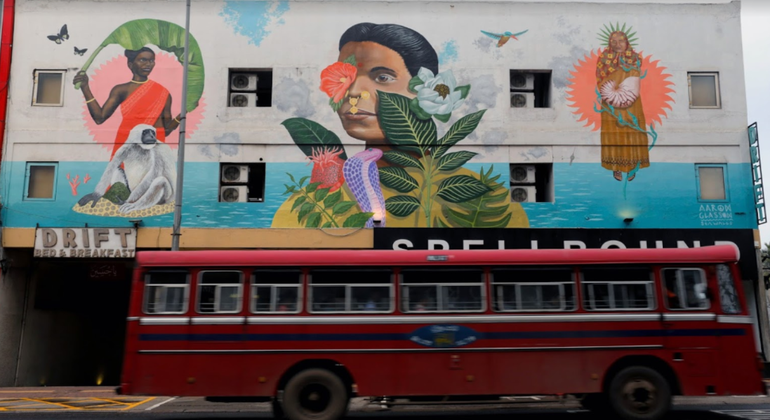The first time I hosted friends in Bangkok seems like a lifetime ago. The year was 2009, President Barack Obama had just been sworn in, James Cameron’s Avatar was the year’s highest grossing film and I became an ad-hoc guide for six energetic millennials.
At the time, I felt such pressure to make sure my friends ate, saw, smelled (durian), wai’d, and tried everything. It was their first visit to Thailand, and they were counting on me to deliver an “authentic local experience”. (Little did I know how much those three words would impact my career today).
Looking back, my biggest takeaway is simply that most travellers desire an element of the extraordinary: something unique, captivating and memorable that they can recall for years to come. In order to provide that, I had to gauge their particular appetites for adventure and plan our itinerary accordingly. But what if they didn’t conveniently have a local buddy on-hand – how would their trip have turned out?

Perhaps with the help of articles, top-10 lists and published travel guides, they would have been OK. Better yet, they might have sought out their hotel’s concierge for sightseeing ideas, discussed Bangkok’s best street food stalls with a lively waitress at breakfast or discovered the neighbourhood’s temple after chatting with an ever-smiling doorman.
Inevitably, and thankfully, hospitality at its best requires genuine face-to-face human finesse. It is that very notion – and the idea that travellers are inherent story collectors and experiences seekers – that makes Airbnb’s recent offer, Trips, something to keep an eye on.
Guiding a New Path
In what seems like a natural extension of Airbnb’s mottos of ‘Live There’, ‘Welcome Home’ and ‘Belong Anywhere’, Trips enables plucky locals, and even non-profit organisations, to share their insights, passion, culture and art with curious travellers. Made to tap into Airbnb’s already substantial global network of hosts and guests, Trips is motivated by the fact that, as Airbnb CEO Brian Chesky says, “You can spend as much time planning your trip, as on your trip.”
The new offering is something the company says will ‘fix’ this problem, giving travellers authentic local experiences while freeing up the time usually spent researching and arranging said experiences. Experience Hosts, as they’re calling these local insiders, can’t just be any regular Joes. They must be creative, expressive, welcoming and, most importantly, not think of themselves as tour guides. This extends to the types of experiences hosts should offer. Airbnb challenges them to create “an experience that your guests wouldn’t be able to find on their own”.
The latter point is perhaps the essential trait of Trips. Because, regardless of what travellers wish to do – dive with sharks, hunt truffles, learn Dominican bachata dance – it is still easiest (and safest) for them to ask their hotel to arrange it.
The reason Trips is such an exciting prospect is that many hotels either aren’t prepared or are too mired in convention, to cater to travellers’ growing appetites for off-the-beaten-path adventures. The majority of hotels and tour groups continue to peddle generic tours that don’t quite fulfil expectations or inspire the imagination. This is at their peril, as more forward-thinking operators are taking a leaf from Airbnb’s playbook, realising they need to offer distinct, bespoke experiences if they are to sell their tours.
Learning from Experience
Airbnb has already had a profound impact on the industry, and although it is less than a year old, Trips is shaking up expectations and business models in the hospitality and travel world. To the
benefit of travellers everywhere, this has been a motivating factor for all operators, from independent properties to global brands, to invest more into creating, and enhancing, their own experience offers.
While some are catching up, others are already well on their way. West Hollywood’s Sunset Marquis is leveraging its rock-n-roll reputation to tap into experiential travellers. From making their famous underground recording studio available to guests and adding the Morrison Hotel Gallery (an extension of the New York City-based gallery) to monthly themed events focused on music and artists, the Sunset Marquis has proven that hotels can more than compete with the independent local insider ‘host’. Perceptive guides and guest experience managers at hotels may even employ Trips as an additional platform – because if you can’t beat ’em, join ’em.
Multinational hotel groups with brands that showcase local culture and design, such as IHG’s Indigo or AccorHotel’s MGallery, are also a step ahead and should have little difficulty adapting and even innovating. Still, while some will rise to the occasion, there will undoubtedly be a thinning of the herd.
Local tour companies dependent on standard one-day trips may have to go back to the drawing board. I doubt anyone will miss those loud, flag-waving, time-keeping tour guides, their military-strict
sightseeing schedules and their cold, uncomfortable minibuses. No matter what the future holds for this industry, one thing is for certain: it doesn’t pay to lather, rinse and repeat.
Hoteliers VS. Hosts
While independent hosts have agility going for them, hospitality expertise and training are not to be taken lightly. The very purpose of Airbnb is to connect regular people with, well, regular people – not seasoned hospitality professionals.
While there will always be outstanding, generous indie hosts, hoteliers as a whole still set the standard for service and care. A team of in-tune, dedicated specialists is better equipped to serve. And judging by the expansion of their training programmes and the growing intensity of their experience proposal vetting, Airbnb knows this.
Consumers and industry experts should not discount the value of brand standards, service and operations guidelines, job experience and ethical requirements. Each assures guests of respect and fair treatment.
Being a hotelier entails so much more than checking-in guests, offering poolside service or even being a local discovery guide. It is a specialised role that demands expert precision, commitment to guest
experiences, passion for service, creative innovation and enthusiasm for each and every guest. Hoteliers, whether seasoned or newly minted, have a very real stake in delivering the best services to guests.
For Airbnb, whose hosts are probably not seasoned hospitality experts, maintaining standards will be an ongoing challenge.
Last year, the company came under fire over its hosts’ ability to refuse potential bookings based on guests’ race, nationality, age, gender and more. A study published in May by Rutgers University, based on nearly 4,000 Airbnb booking requests, found that bookers with disabilities were refused at rates higher than people without disabilities.
While Airbnb has implemented a non-discrimination policy to “reaffirm their commitment to inclusion and respect”, there are obviously still ways around the language. Currently, the most severe consequence that rogue Airbnb hosts face is being removed from the platform. Meanwhile, Airbnb’s reputation suffers.
Naturally, hosts do not have the same connection or obligations to Airbnb as a hotelier has to their property and brand.
Ask the Experts
Did I end up being a good local ‘experience host’ for my friends? Much to my relief, they ended up falling in love with Thailand, and their happiness was well worth all the planning. But I can’t claim all the credit. While it was easy to share my enthusiasm for a city so close to my heart, I had plenty of support.
Thanks to Thailand’s mature travel industry, I was able to tap into a well-established infrastructure. I stole ideas from articles. I scoured top-10 lists. And every morning while my friends were diving into their hotel’s breakfast buffet, I reviewed my itinerary with the concierge, whose insights and advice were essential to our holiday.
So while Trips may signal a new era of travel, it’s not the end of the tour. The quest for an authentic local experience is always going to rely on exactly that: experience.



